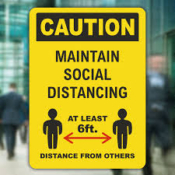WHAT SHOULD YOUTH MINISTRY LOOK LIKE AFTER THE PANDEMIC?

What should our youth ministries look like after our students can return to our church buildings for youth groups? I am wondering if there will be a “new normal”; and if so, what should change from the way we did ministry before COVID-19?
Here are a few of my thoughts about some key categories of what SHOULD change when we can meet physically again with our teenagers:
- Safety
Youth workers and other church leaders will need to think this through right away. What must we change about our physical buildings, our meeting set-ups, the way we take attendance, and the way we play games during our youth ministry gatherings?
It probably makes sense to ask everyone to wear face masks and to arrange our seating setup to ensure the 6’ distancing guidelines. We probably need to consider if and how we should serve food and drinks for our attendees. Even the way we distribute sheets of paper or ask kids to check-in on a computer kiosk will need to be reconsidered.
Parents of some teenagers may not be too worried about these things, but other families will be! All they have heard for the last several weeks has been to follow the rules of social distancing. So it doesn’t make sense for churches to not heed those directives when our groups can meet again.
We will all need to be careful. It is important to strategize and plan now for our ministries to open again. Things will not be business as normal – especially in the minds and hearts of some of our church people. So, it is very important right now to begin the planning process of what your ministry is going to do when you can open the doors.
Some states will require attendance limits, and I know that some churches are considering offering multiple meetings times to accommodate those limited numbers. (For instance, some states are still discouraging groups of more than 25 people to gather in the same location.) Some churches are also planning to continue using Zoom as well, knowing that some kids will not attend our youth groups in person. That way they will still be able to be involved in some way in our programs.
Making sure that your people are safe will need to be a top priority. Plus, you will need to clearly communicate to all possible attendees what your church has done (like thoroughly clean and disinfect your building’s entry way and meeting rooms) and what you will keep doing from now on for people to feel safe in your building.
You will need to develop a comprehensive checklist of safety items to accomplish before kids show up in your building. Then it is very important to let your people know what you have done to protect the kids.
- Teaching
Your kids will undoubtedly crave in-person, human connections with their friends and mentors that are a part of your church’s youth ministry. When they can return to your building, the tendency will be to “party”, to have fun, and to renew friendships and to rebuild relationships. Those things are especially important (we’ll talk more about that below), but it may be even more important to make much of God and His Word upon their return to church youth group. Your kids will need to hear you talk about God’s purpose for this crisis, that His work in the world is not thwarted, and that their role in His mission is still in effect. They may crave fellowship, but they will need Biblical answers taught by Godly leaders – and our Lord has put youth leaders in an ideal position right now to direct kids’ minds toward His Word.
- Fellowship and Human Connections
Several weeks of isolation away from others (friends and classmates, teachers and mentors, youth groups) in a stay-in-place world will probably motivate your teens to crave time with additional people. As I mentioned above, they will certainly want time to reconnect and hang out with their friends in informal, unstructured conversations. I am not saying that doing that is NOT important. It is very important, and wise youth workers will need to plan time when their buildings are open for teenagers to do just that. But, don’t forget – they’ll want to party, but they need to hear from God – so let’s be sure to balance our programming to allow for both to happen.
There is another matter that I need to highlight. There are likely to be many kids that will need some type of emotional, social, or even physical support from the church once this pandemic is over. Being out of school and having extra time at home will not be positive for everyone. There are many dysfunctional, broken, and hurting households out there. Church leaders must be sensitive toward these hurting households and need to have a plan to provide helpful resources for troubled kids and parents.
- A Break from “Screen Time”
More than ever, today’s kids are living in an online world. The church and many youth groups have moved online, but our kids are already there. They live in a “Fortnite”, contrived-reality world. Their lives are dominated by social media personas, where “likes” carry way too much weight.
My wife and I have 9 grandchildren, with the oldest being only 14 years old. Each of them has had access to an iPad since they were very young. It is not all that strange to them to have school online. Their schools have utilized internet-based educational systems already.
However, the current COVID-19 situation has led to an ever-greater amount of screen time for our kids. This may be difficult to pull-off, but I believe that kids will need a break from their devices. I am not saying that we need to make new youth group rules to limit their use of cell phones. I am saying that meeting in person may take on an even greater significance once the stay-at-home directives are released. Let’s prepare now for how important our youth group meetings will be once we can gather in person.
- Help for Fear and Anxiety
Younger generations are already struggling with fear and anxiety – and the coronavirus pandemic may exacerbate these feelings even more. Everyday they are being told to stay 6 feet away from other people, that they can’t see their friends and relatives, that they have to wear facemasks, and that everyone they meet might be a potential carrier of the virus. We are running out of toilet paper, disinfectant wipes, and now meat. To make matters worse, almost every news program rehearses the number of casualties of COVID-19. Today’s young people are likely to emerge from this pandemic with even greater levels of debilitating anxiety.
Church youth groups will need to be beacons of hope and comfort to these needy young people and their families. We can offer the Truth of God’s Word to a hurting generation. Caring adult youth workers can have an incredible impact by demonstrating Christ’s unconditional love to parents and kids alike. That is another reason why church leaders, maybe especially youth workers, should plan now to actively consider what their ministries will look like once people can return to church buildings.

